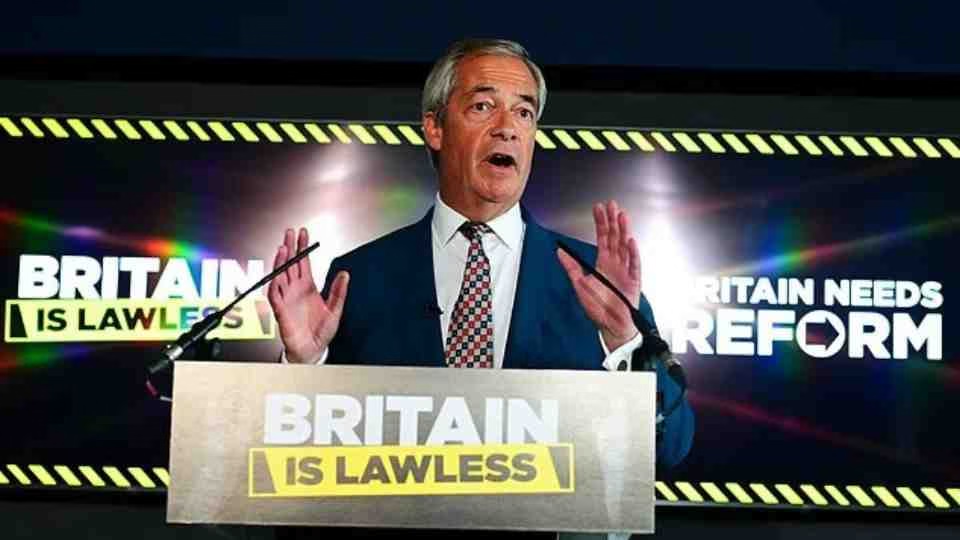Reform UK leader Nigel Farage has unveiled an ambitious immigration policy package that would fundamentally reshape Britain’s approach to managing illegal migration, though critics argue the proposals largely echo previous Conservative initiatives.
Key Policy Proposals
In a major policy address, Farage outlined a multi-pronged strategy centered on mass deportations and withdrawal from international human rights frameworks. The plan includes several dramatic measures that would represent a significant departure from current government policy.
Under Farage’s proposals, all individuals arriving by small boats would face immediate arrest, detention, and deportation. The Reform leader pledged that a government under his leadership would conduct five daily charter flights for deportations, potentially removing hundreds of thousands of people from the country.
The policy framework extends beyond enforcement to include voluntary departure incentives. A proposed “deportation app” would allow migrants to arrange their own return, supported by £2,500 payments and free flights home. Officials estimate the entire program would cost approximately £10 billion to implement while generating long-term savings.

International Legal Framework Changes
Central to Farage’s vision is Britain’s withdrawal from the European Convention on Human Rights, a move that would fundamentally alter the country’s relationship with international law. The Reform leader argues this step is necessary to overcome legal obstacles that currently prevent deportations.
The ECHR would be replaced by a new British Bill of Rights, specifically designed to apply only to British citizens and legal residents. This domestic framework would emphasize free speech and liberty protections rather than broader human rights provisions.
Emergency legislation, dubbed the Illegal Migration (Mass Deportation) Bill, would bar small boat arrivals from claiming asylum entirely. This represents a complete reversal of current asylum procedures and international obligations.

Detention and Processing Infrastructure
The immigration strategy includes substantial infrastructure development, with plans to construct detention centers on military sites within 18 months of taking power. These facilities would accommodate up to 24,000 individuals, with detainees prohibited from leaving or claiming bail.
Farage also proposed utilizing third countries for migrant processing, specifically mentioning Rwanda and Albania as potential partners. British overseas territories, including the remote Ascension Island, would serve as locations of last resort for housing asylum seekers.
Political Dynamics and Criticism
The announcement has intensified pressure on Prime Minister Keir Starmer’s government, which faces mounting criticism over record Channel crossings and public anger about migrant accommodation in hotels. Farage directly challenged Starmer to choose between protecting British borders and maintaining commitment to international treaties.
However, Conservative Party officials dismissed the proposals as derivative, arguing that Reform UK had simply repackaged existing Tory policies. Shadow Home Secretary Chris Philp characterized the announcement as “nothing more than a copy-and-paste of Conservative policies” developed over months of previous work.
The Conservatives pointed to their own recent initiatives, including legislation banning small-boat migrants from claiming asylum and the Rwanda deportation agreement, though no flights under that scheme ever materialized. Opposition leader Kemi Badenoch is currently conducting a review expected to recommend ECHR withdrawal.
Government Response
Labour sources dismissed Farage’s proposals as recycled Conservative approaches that had already proven ineffective. They characterized the announcement as “empty soundbites without the plans to back it up,” pointing to record asylum costs and declining removal rates under previous Conservative governance.
The current government has taken some steps toward stricter immigration enforcement, including a “one in, one out” arrangement with France and measures to restrict Article 8 family life claims that prevent deportations. Recent reports indicate over 100 migrants have been detained for deportation to France as part of these efforts.
Historical Context and Consistency
Notably, Farage’s current position represents a significant shift from his previous statements. In September of the previous year, he had described large-scale deportations as “pointless” and a “political impossibility,” suggesting his approach to the issue has evolved considerably.
The proposals also echo long-standing Conservative initiatives, including attempts to replace the Human Rights Act with a British Bill of Rights dating back to David Cameron’s leadership in 2006. Similar legislation was proposed by then-Justice Secretary Dominic Raab in 2022 before being abandoned.
Reform UK defended their proposals by highlighting the Conservative Party’s 14-year tenure in government, during which illegal migration reached unprecedented levels and the Channel crossing crisis intensified despite various policy initiatives and legislative changes.






